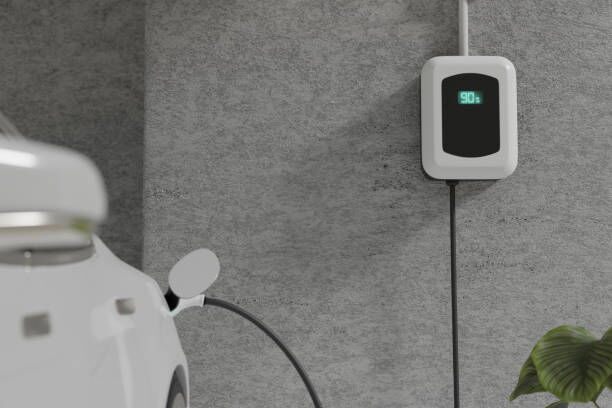Home EV Charger Installation: A Comprehensive Guide
On this page
The transition to electric vehicles (EVs) is gaining momentum, and having a home EV charger ensures convenience and efficiency for charging your vehicle. This article explores the process of installing a home EV charger, the factors to consider, benefits, and costs involved.
Driveways: Near where you usually park your car.
Garages: A secure indoor option.
A qualified electrician will evaluate your preferred location to ensure it meets safety and technical requirements.

Driveways: Near where you usually park your car.
Garages: A secure indoor option.
A qualified electrician will evaluate your preferred location to ensure it meets safety and technical requirements.
To ensure a seamless installation experience, consider the following factors:
Determine where your EV is parked most frequently and plan to install the charger close to that spot.
Many modern chargers use smart technology, requiring a stable Wi-Fi connection for features like remote monitoring and updates.
Decide whether you want a standard charger (3.6 kW or 7 kW) or a faster one. Research brands and models to find the best fit.
Factor in installation expenses, including potential electrical upgrades.
Select a reputable provider known for quality and customer support.
Charging at home eliminates the hassle of finding public stations. Simply plug in your vehicle overnight, and it’s ready to go the next day.
With a home charger, you can control when and how you charge, optimizing energy use to take advantage of off-peak electricity rates.
Proper charging through a dedicated home station can help preserve your EV’s battery health over time by regulating power flow.
Home chargers come with built-in safety features such as circuit breakers and ground fault protection, reducing risks associated with charging.
Switching to an EV and using renewable energy for home charging significantly reduces your carbon footprint.
Installing a home EV charger can boost the resale value of your home, as EV ownership grows and buyers seek homes with EV-friendly amenities.
The cost of installing an EV home charger varies widely based on several factors. Here's a breakdown:
Urban areas may have higher installation costs due to labor and permitting fees.
Installing the charger outdoors or in a location far from your home’s main electrical panel can increase costs.
Faster chargers or those with advanced smart features tend to be more expensive.
If your home requires modifications, such as upgrading the electrical panel or adding a new circuit, the costs can rise significantly.
Basic Installations: $300–$1,000
For standard 3.6 kW or 7 kW chargers with minimal electrical work.
Complex Installations: $1,500–$3,000+
For higher-power chargers or when extensive electrical upgrades are needed.
For standard 3.6 kW or 7 kW chargers with minimal electrical work.
Complex Installations: $1,500–$3,000+
For higher-power chargers or when extensive electrical upgrades are needed.
Since installation costs can vary, it’s essential to get quotes from certified electricians or installation companies. This ensures transparency and avoids unexpected expenses.
Hire a certified electrician to assess whether your current setup supports the desired charger.
Research chargers that match your vehicle and driving habits. Smart chargers with app connectivity are popular choices.
Decide where the charger will be installed, considering accessibility and proximity to your parking space.
Schedule an installation with a qualified electrician who specializes in EV chargers.
After installation, the electrician will test the charger to ensure it functions properly and complies with safety standards.
In most cases, you don’t need special permissions. However, some neighborhoods or homeowner associations may have specific rules, so it’s best to check beforehand.
DIY installations are not recommended, as EV chargers require proper wiring and safety measures. Always hire a certified electrician.
If you don’t have a private parking space, consider public charging options or talk to your local authorities about potential on-street charging solutions.
Installing a home EV charger is a practical step toward embracing the future of transportation. With benefits like convenience, safety, and cost savings, a home charger enhances the EV ownership experience. While upfront costs can vary, the long-term advantages make it a worthwhile investment. Take the time to plan your installation, consult with professionals, and enjoy the ease of charging your EV from the comfort of your home.
